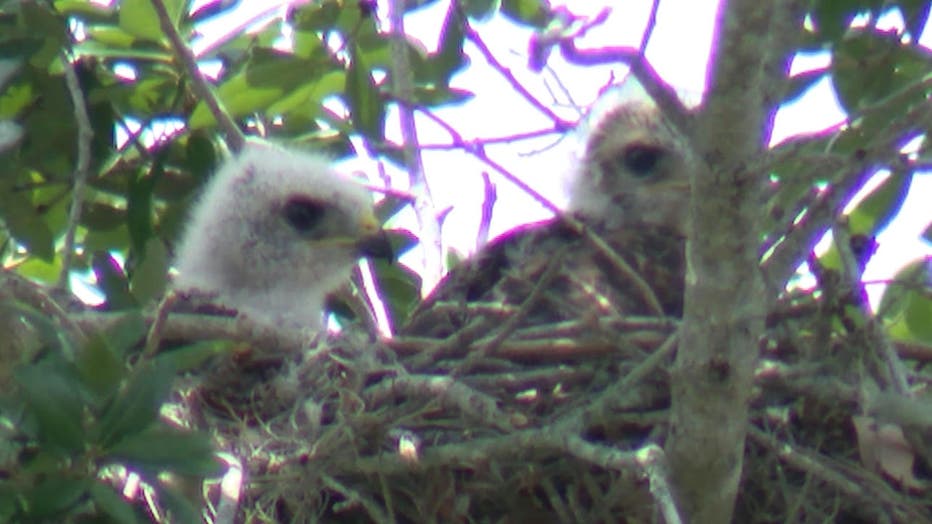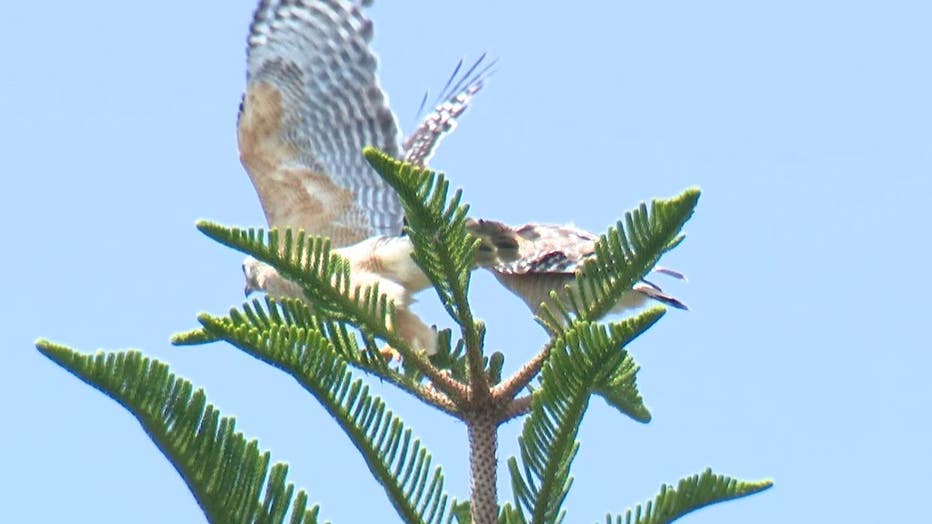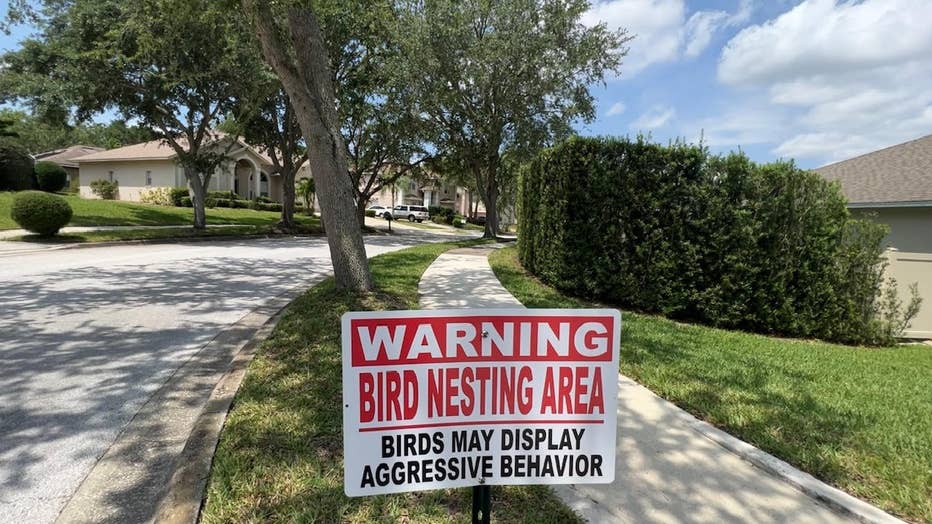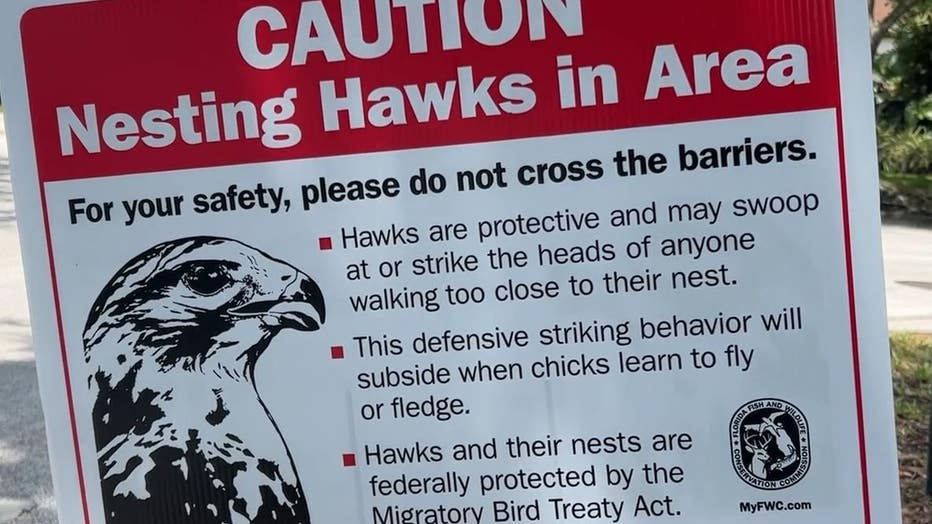Aggressive hawks attacking residents in Florida neighborhood: 'swooped down and tried to grab me'

Aggressive hawks attacking residents in Central Florida neighborhood
Residents of a Central Florida neighborhood are concerned about an aggressive family of hawks that has apparently made themselves at home, according to neighbors.
ORLANDO, Fla. - Residents of a Central Florida neighborhood are concerned about an aggressive family of hawks that has apparently made themselves at home, according to neighbors.
Andrea Williams, who lives in MetroWest, a neighborhood in Orlando, said at least two neighbors have been attacked by hawks.
"One, he had a hat on, so thankfully he’s ok. Another had to go to the doctor and have a couple of stitches," she said.
Near Bardmoor Hill Circle and Glynde Hill Drive, FOX 35 crews spotted a family of hawks high in one of the trees. We spotted two adult hawks and two young hawks in their nest.


Neighbors walking by had umbrellas and hats – not for shade, but for protection.
"It’s a little nerve-racking because we have kids," said Ben. "We have a hawk protecting her nest."
The Florida Fish and Wildlife Conservation Commission said hawks -- like all raptors – are protected in Florida, and may become more aggressive during nesting season, which runs through winter and spring, and, yes, sometimes that will involve diving at people.
One woman who did not want to show her face on camera said she was attacked. "The hawk just swooped down and tried to grab me by the head, but I screamed and scared it off," she said.
To help with awareness, signs have been placed around the neighborhood: "Birds may display aggressive behavior."

According to the FWC, hawks may dive to those they feel are getting too close to their nest. The behavior should go away once the baby birds learn to fly.
Here are some tips (via FWC's website):
- Avoid areas near the nest, if possible. If you must venture closely to an active nest, carry an open umbrella, or wear a hard hat. Place signs in pedestrian areas to alert others to the presence of a nest and protective hawk parents.
- Temporarily build a shade structure to obstruct the birds’ view of people and pets.
- An air horn may effectively deter birds that start to dive, but it is important to only use this device if a hawk is actively diving at you (and not just perched in a tree or nest).
- During times outside of breeding season, trim branches near your home’s entrances and outdoor living spaces to minimize chances of hawks perching in those areas in the future.
- Eliminate food sources that may attract prey such as rodents into your yard. Unsecured garbage, fallen bird seed and pet food are common household attractants that may entice prey species and other wildlife onto your property.
- Secure livestock, particularly smaller stock such as chickens and rabbits, in a covered and fenced structure


